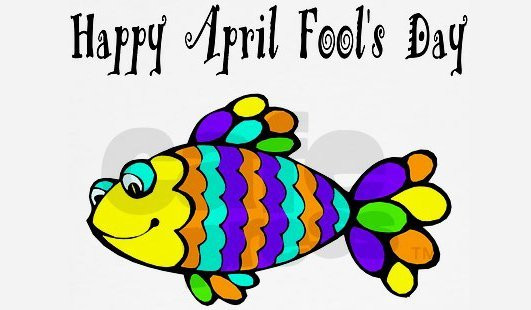Origin of April Fool's Day
Until now, the real origin of April Fool's Day is still controversial. But most agree that it originated in France, created by King Charles IX.
In 16th century France, the annual festival season began on the first of April. At that time, the new year was counted from April 1 because this was considered the first day of spring.
April Fools' Day has many funny jokes. Illustration photo
In 1582, Emperor Charles IX ordered the New Year's Day to be moved to January 1. Because the means of communication at that time were backward, information was not spread promptly, so many people in remote areas did not know.
Others knew but were "conservative", did not accept the new calendar and continued to celebrate the New Year on April 1. This was considered "silly" and became a joke.
So April 1st became a symbol of misinformation and some humorously called it “April Fools’ Day”. From there, the name “April Fools’ Day” appeared. April Fools’ Day pranks gradually became a tradition in France, then spread to England, Scotland and many other places.
April Fool's Day spread and became an international festival accepted in many countries around the world.
Why is it called April Fool's Day?
The concept of "poisson d'avril" (April fools, in the French literary sense of April Fish) was first mentioned by the French poet Eloy d'Amerval (1455-1508).
The reason d'Amerval called it that was because April was also considered the month of the zodiac sign Pisces with the symbol of two fish.
Furthermore, April is also the time when temperate fish, such as mackerel, are most vulnerable to capture because they travel alone. Thus, April Fools' Day has become a term that refers to foolishness.
Therefore, April Fool's Day is also called April Fool's Day. On this day, people can freely play harmless pranks to make others laugh.
Source vietnamnet
Source: https://baotayninh.vn/ca-thang-tu-la-ngay-gi-tai-sao-lai-goi-la-ngay-noi-doi-a188164.html



![[Photo] Prime Minister Pham Minh Chinh meets with King Philippe of Belgium](https://vstatic.vietnam.vn/vietnam/resource/IMAGE/2025/4/1/be2f9ad3b17843b9b8f8dee6f2d227e7)

![[Photo] General Secretary To Lam receives King Philippe of Belgium](https://vstatic.vietnam.vn/vietnam/resource/IMAGE/2025/4/1/e5963137a0c9428dabb93bdb34b86d7c)
![[Photo] President Luong Cuong and King Philippe of Belgium visit Thang Long Imperial Citadel](https://vstatic.vietnam.vn/vietnam/resource/IMAGE/2025/4/1/cb080a6652f84a1291edc3d2ee50f631)
![[Photo] Close-up of Vietnam's sniffer dog team searching for earthquake victims in Myanmar](https://vstatic.vietnam.vn/vietnam/resource/IMAGE/2025/4/1/d4949a0510ba40af93a15359b5450df2)

















![[Photo] Myanmar's capital in disarray after the great earthquake](https://vstatic.vietnam.vn/vietnam/resource/IMAGE/2025/4/1/7719e43b61ba40f3ac17f5c3c1f03720)






























































Comment (0)